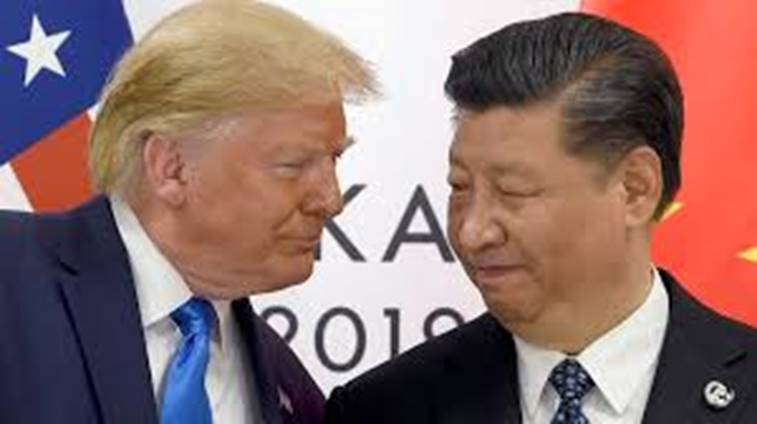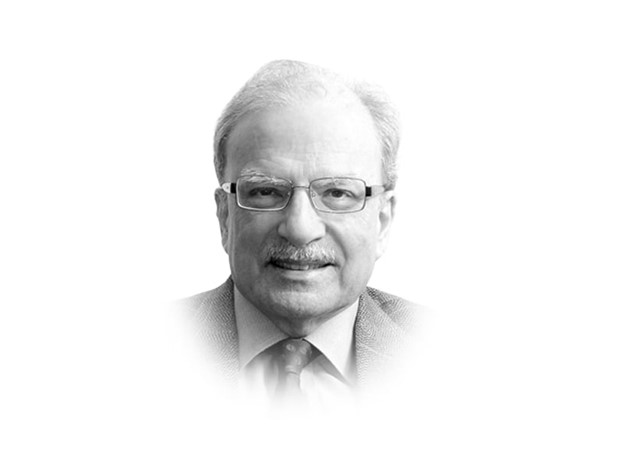 Photo Radio Free Asia
Photo Radio Free Asia
Trump's Victory Is Not China's Loss
By Shahid Javed Burki
US

Even though there are a couple of months left before Donald Trump moves back into the White House - something he will do on January 20, 2025 - analysts are asking how his victory would affect the United States relations with the world? Of particular interest is the relation with China. "A lot of people here including the government, I think are preparing for certain upheaval or storms but nobody knows," said Tang Shipping, an international professor at Fudan University in Shanghai. He released a computer model that predicted Trump's victory. "I don't think anybody really understands or has a rough idea what Trump in his second term, will be able to do."
There were several among the thinking people in China who believed that Elon Musk who had strong business interests in China and was now a close adviser of President-elect Donald Trump could be a bridge between Trump's America and Xi's China. "China would be happy to see him play a role in bringing the two countries to an understanding - there are basically mutually beneficial opportunities in working together," said Wang Zichen, who writes the Pekingnology newsletter on Substack.
In congratulating Trump for having won the presidency again, Xi Jinping, Chinese supreme leader, hoped their two countries could work together to achieve a better world. "History tells us that China and the United States gain from the cooperation between the two nations," the Chinese leader said in his message. "A stable, sound and sustainable China-US relationship serves the two countries' shared interests and meets the aspiration of the intentional community." However, Trump had a mixed record in dealing with Xi and China. At the start of his first term in 2017 he attempted to strike a deal with Xi, inviting him to visit at his residence Mar-a-Lago on the Florida coast. His hospitality was returned when the Chinese arranged an elaborate state visit for the newly elected American president. Trump often spoke with great warmth about Xi, calling him a "friend" and "incredible guy".
But this warmth did not last for even a year. In 2018, Trump changed his attitude towards China, accusing the country of having unleashed on the world the deadly Covid 19 virus that took millions of lives across the world. Hundreds of thousands of people died in the United States before the Trump team was able to devote resources to develop a vaccine that addressed the disease. Trump said openly that a laboratory in Wuhan in China was responsible for releasing the deadly virus.
However, even more important for relations between the two countries was the American president's belief that China stood in the way of his achieving the objective of 'Making America Great Again'. The slogan MAGA was adopted by millions of Trump followers in the United States and no doubt contributed to his victory in the poll on November 5, 2024. It appeared on the red hats worn by the Trump followers that attended the rallies Trump held across the country while campaigning for the elections.
In his first term in office, Trump launched a trade war against China by imposing tariffs on $360 billion Chinese imports into the United States as well as imposing restrictions on the operations by Chinese technology firms. Especially targeted was Huawei, the giant electronic firm that had deeply penetrated not only the United States but also Western Europe.
On the campaign trail in 2024, candidate Trump pledged to double down on his harsh policies adopted in the period 2017-2021 including the indication that he would impose 60 per cent tariffs on all Chinese imports. When Trump begins his second term on January 20, 2025, it seems unlikely that his relations with Xi would be smooth and friendly. The new trade war would come at a very awkward time for Beijing and its leader Xi Jinping. By the time Trump returns to the White House, China would still be struggling to have its troubled economy to rebound and hit the target of 5 per cent growth. Given the fact that the economy had grown at 8 to 10 per cent a year in the early part of this century has been demoralizing for the Chinese leadership. The property sector in particular was faced with difficulties, having been given financial and regulatory support by the state in the past.
Despite the tough trade talk, Trump has returned to underscoring his personal relations with Xi Jinping. In an interview with Joe Rogan, the American journalist specializing in studying China, Trump once again talked of his special relations with the Chinese leadership. Speaking of his relations with Xi, he boasted, "We got along very well. They treated me better than anybody has ever been treated." Beijing leaders have learned that showing utmost respect to "a very powerful leader who thinks highly of himself can go a long way," said Wang whom I have quoted above.
"China has been preparing for a long time," said Tong Zhao, a senior fellow at the Carnegie Endowment for International Peace in Washington, "but another trade war would be hugely damaging." He emphasized that the Beijing leadership could hope to undermine American efforts to isolate China through a broader Western coalition. China would certainly strive to establish its own image of a more responsible power in contrast to the declining American international standing." In the statements made while campaigning for winning the presidency, Trump vowed in particular to wrench apart the US economic relationship with China. Writing for The New York Times, journalists Peter Baker and Charlie Savage, worried about "a turbulent change for the world's two largest economies, which exchange about $750 billion in goods and services each year". He has said he would enact aggressive new restrictions on Chinese ownership of assets in the United States, bar Americans from investing in China and eventually ban Chinese-made goods like electronics, steel, and pharmaceuticals. What he never said was how he would achieve these goals.
Some of the appointments made for senior positions in the administration that Trump was putting in place were known for their anti-China stances. Among them most notably was Marco Rubio who will be the Secretary of State in the new government. Rubio had been openly critical of China, in particular the way Beijing had aligned itself with Moscow to develop an arrangement that would counter the influence of Washington on world affairs. The Express Tribune
(The writer is a former caretaker finance minister and served as vice-president at the World Bank)

